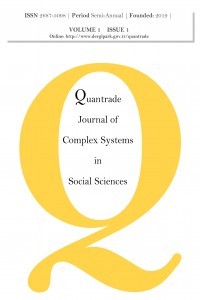Evaluation of the Effectiveness of Budgetary Rules on the Development of the Main Macroeconomic Aggregates
Evaluation of the Effectiveness of Budgetary Rules on the Development of the Main Macroeconomic Aggregates
Quantitative fiscal rules is a permanent restriction on fiscal policy in the form of a synthetic indicator on fiscal performance. They are to set a goal or a numerical limit to key fiscal aggregates such as growth rate and the level of debt. The objective of this work is to study the determinants of fiscal rules and the effectiveness of their application to the evolution of the main macroeconomic aggregates (growth, debt, primary balance and inflation) in a panel of 14 countries that have adopted such national rules on the period 1990-2013. After defining the mapping of fiscal rules, we used multivariate analysis of data (statistical tests, Principal Component Analysis) and econometric panel in (estimating a fiscal reaction function, qualitative modeling logit) in order to evaluate the performance obtained after adoption of fiscal rules in particular as regards the main macroeconomic aggregates. The results helped to crown the determinants and effectiveness of fiscal rules on performance improvement.
___
- Laaribya S, Alaoui A, 2017 : Rural women and the forest issues preservation - Case study, Morocco -Volume 10 Number 2 (S2)- Biological Diversity and Conservation-ISSN 1308-8084 Online; ISSN 1308-5301 Print
- Alaoui, A., Laaribya, S., & Ayan, S. (2020). The Evolution of The Forest Cover with The Effect of Anthropic Pressure (The Case Study of Sehoul Cork-Oak Forest in Morocco, North Atlantic). Kastamonu University Journal of Forestry Faculty, 20 (1), 62-73.
- Yayın Aralığı: Yılda 2 Sayı
- Başlangıç: 2019
- Yayıncı: Tolga ULUSOY
